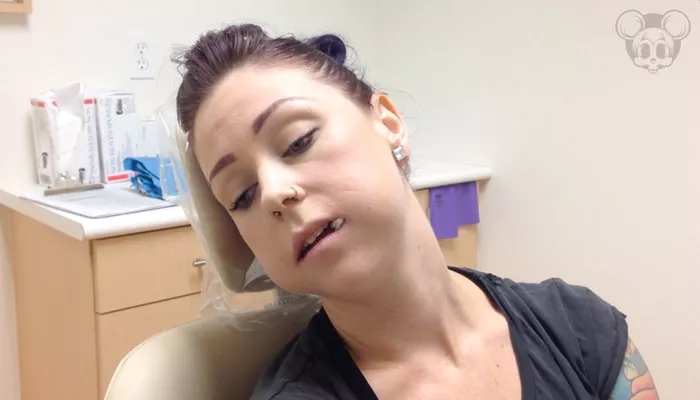Wisdom teeth removal is a common dental procedure that many people undergo, usually in their late teens or early twenties. These third molars, located at the back of the mouth, often cause problems due to their tendency to become impacted or grow in misaligned. Once removed, patients often have questions about their recovery process, including whether it is safe or advisable to talk post-surgery. In this article, we will explore the factors influencing the ability to talk after wisdom teeth removal, potential risks, and best practices for a smooth recovery.
The Wisdom Teeth Removal Procedure
What to Expect During Surgery
The removal of wisdom teeth is typically performed by an oral surgeon under local or general anesthesia. The procedure involves making an incision in the gum to access the tooth, which may need to be broken into smaller pieces for easier removal. After the teeth are extracted, the surgical site is cleaned, and stitches may be used to close the wound.
SEE ALSO: Is It Better to Get All 4 Wisdom Teeth Out or 2?
Immediate Post-Operative Care
After the surgery, patients are usually monitored in a recovery area to ensure they wake up from anesthesia without complications. Gauze pads are placed over the extraction sites to control bleeding and promote clot formation.
Talking After Wisdom Teeth Removal
Initial Hours Post-Surgery
Limited Communication is Key
In the first few hours after surgery, it is best to minimize talking. The primary reasons for this include:
Anesthesia Effects: Numbness and altered sensation due to anesthesia can affect speech clarity and control.
Clot Formation: Talking can disrupt the formation of blood clots at the extraction sites, which are crucial for healing and preventing dry sockets.
Swelling and Discomfort: Swelling and pain immediately after surgery make talking uncomfortable and can stress the surgical sites.
Day 1 to Day 3: The Critical Period
Rest and Recovery
During the first few days post-surgery, the focus should be on rest and minimizing oral movement to facilitate healing.
Speaking should be kept to a minimum to avoid complications.
Pain Management: Patients often experience significant pain and swelling, making talking difficult.
Swelling and Bruising: The mouth and jaw are likely to be swollen, which can hinder clear speech and cause additional discomfort.
Risk of Dry Socket: Excessive talking or movement of the jaw can dislodge the blood clot, leading to a painful condition known as a dry socket.
Day 4 to Day 7: Gradual Improvement
Resuming Light Communication
As the initial swelling and pain begin to subside, patients can gradually start talking more. However, it is essential to still be cautious and not overexert the jaw muscles.
Healing Progress: By this time, the initial phase of healing is well underway, and the risk of dry socket decreases.
Comfort Levels: Pain and discomfort should lessen, making speaking more comfortable.
After One Week: Moving Towards Normalcy
Return to Regular Speech
Most patients can return to their normal speaking patterns within a week after surgery, but this varies based on individual healing rates and the complexity of the extraction.
Monitoring for Complications: Even as speech normalizes, patients should watch for any signs of complications such as infection, persistent pain, or unusual swelling.
Follow-Up Appointments: Regular follow-ups with the oral surgeon or dentist are crucial to ensure proper healing and address any concerns.
Tips for Talking After Wisdom Teeth Removal
Effective Communication Without Strain
Use Gestures or Write Notes: In the initial days, consider using hand gestures or writing notes to communicate essential information.
Speak Slowly and Softly: When talking is necessary, do so slowly and softly to minimize strain on the jaw.
Avoid Lengthy Conversations: Keep conversations brief to avoid excessive movement of the jaw and mouth.
Stay Hydrated: Keeping hydrated can help maintain overall comfort and support healing.
Maintain Oral Hygiene: Follow the dentist’s instructions for oral care to prevent infections, which can complicate recovery and affect speech.
Pain Management And Comfort
Ice Packs: Applying ice packs to the cheeks can reduce swelling and make talking more comfortable.
Over-the-Counter Pain Relievers: Medications like ibuprofen can help manage pain and reduce inflammation.
Prescribed Medications: If stronger pain relief is needed, follow the prescribed regimen from your dentist or surgeon.
Potential Complications and How to Avoid Them
Dry Socket
What is a Dry Socket?
A dry socket occurs when the blood clot at the extraction site is dislodged or dissolves, exposing the underlying bone and nerves. This condition is painful and can delay healing.
Prevention: Avoid vigorous rinsing, spitting, and using straws. Minimize talking and other activities that involve significant jaw movement.
Infection
Signs of Infection
Look for signs such as persistent pain, swelling, fever, or pus discharge from the extraction site.
Prevention: Maintain proper oral hygiene as instructed by your dentist and complete any prescribed antibiotics.
Prolonged Bleeding
Managing Bleeding
Some bleeding is normal post-surgery, but it should gradually decrease.
Prevention: Avoid activities that can disrupt clot formation, such as talking too much, smoking, or strenuous activities.
When to Seek Professional Help
Recognizing Red Flags
Severe Pain or Swelling: If pain or swelling worsens after the initial days, consult your dentist.
High Fever: A high fever could indicate an infection requiring prompt medical attention.
Difficulty Swallowing or Breathing: These symptoms are serious and require immediate medical intervention.
Conclusion
Talking after wisdom teeth removal is generally safe, but it should be approached with caution, especially in the initial days following surgery. Limiting communication can significantly aid in the healing process, reducing the risk of complications such as dry sockets and prolonged bleeding. By following your dentist’s advice and allowing ample time for recovery, you can ensure a smooth and successful healing journey.

